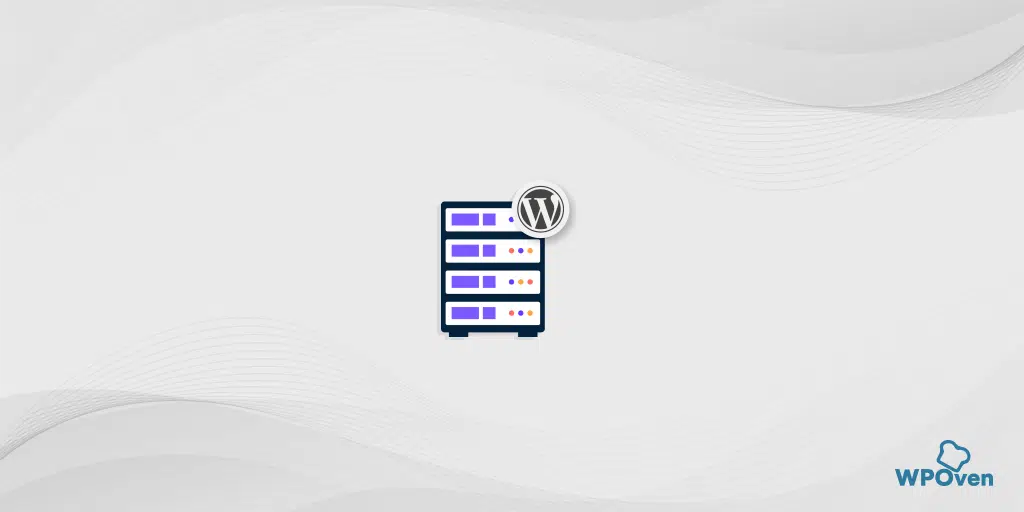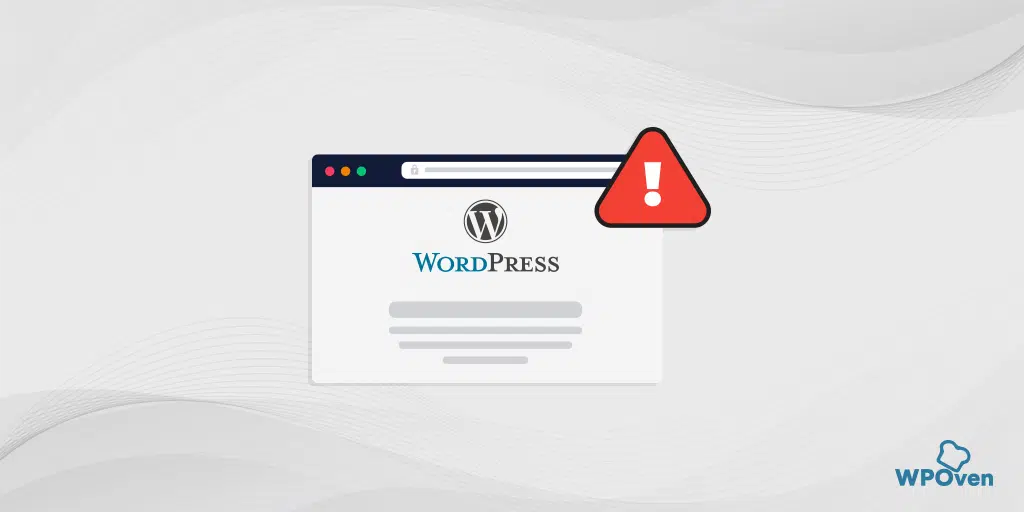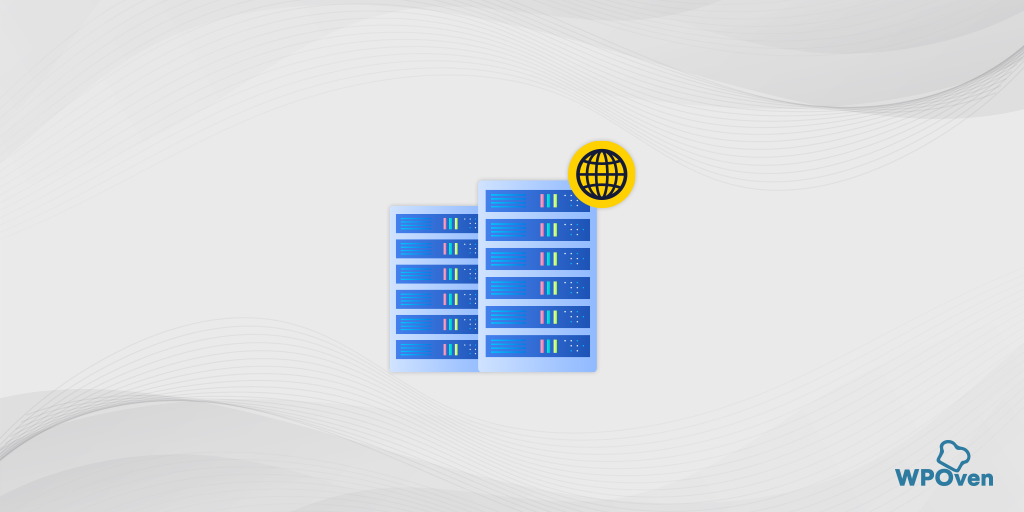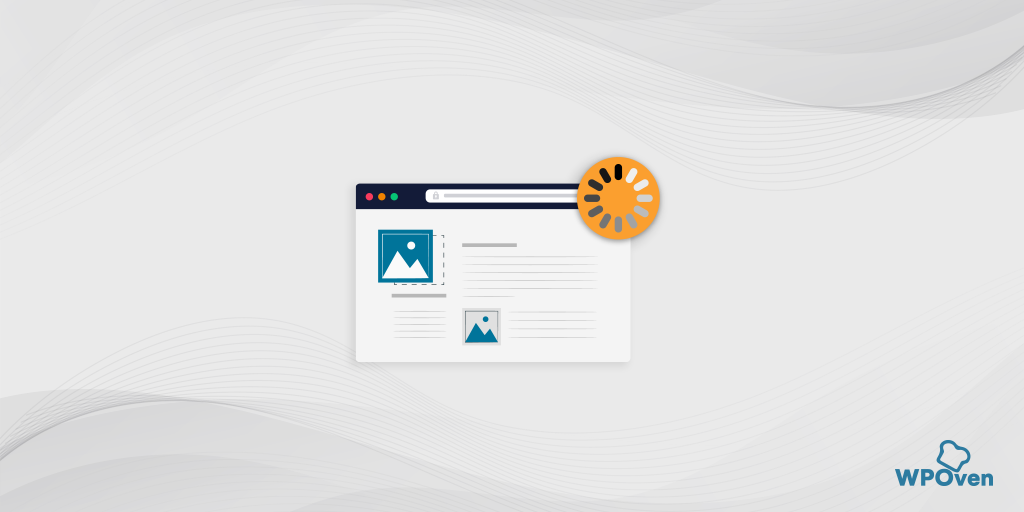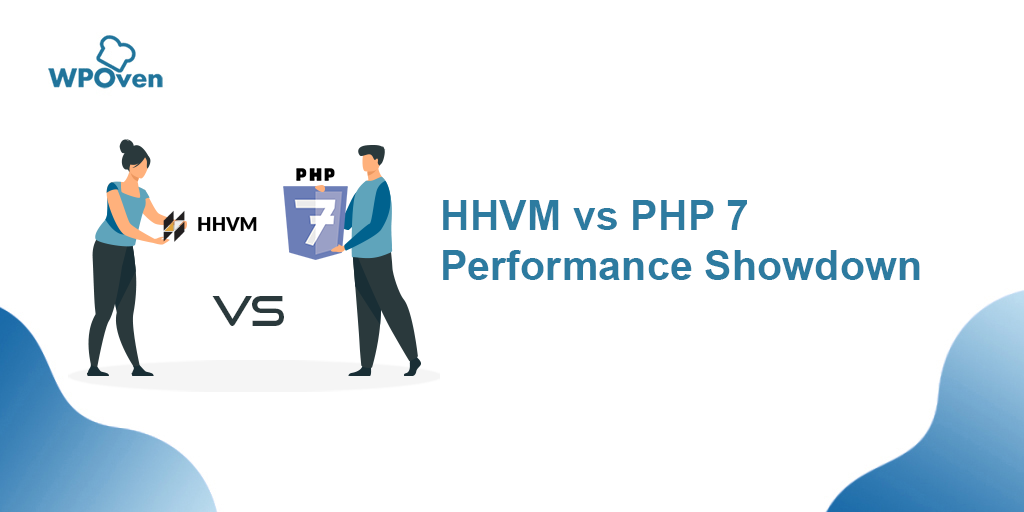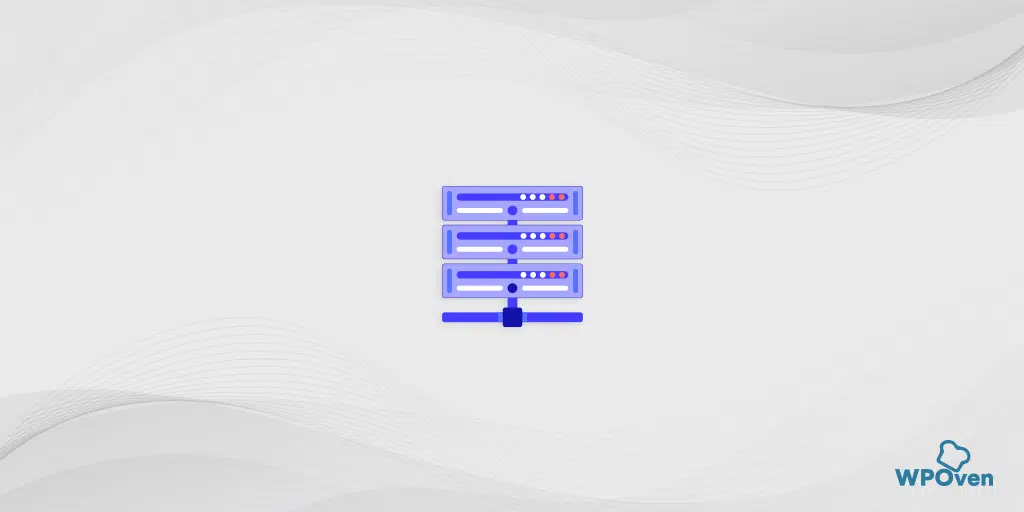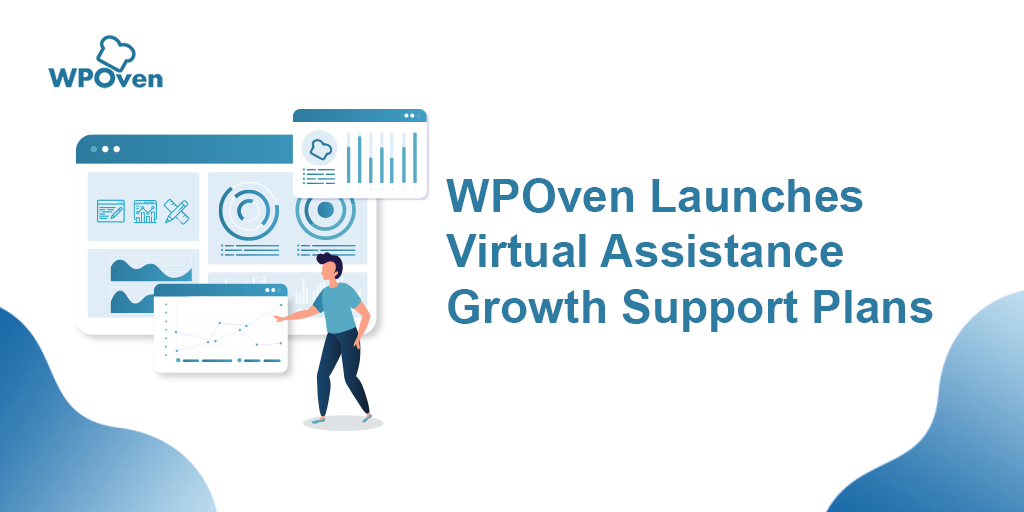You must have heard a lot about dedicated hosting and it’s amazing benefits on various digital platforms, especially for running online businesses. You may have also had a question or self-doubt: is it worth the hype? Does it truly enhance the speed and performance of a website when migrated or hosted on a dedicated server?
Compared to other types of web hosting, there is no doubt that dedicated hosting is highly preferable and highly recommended, especially for delivering reliability, security, speed, and performance.
Why is everyone so obsessed with website speed and performance? Here is the answer.
Significance of Speed and Performance in Website Success
Why should you mainly focus on website performance and speed? It’s because the whole game revolves around achieving better rankings and visibility in search engine results. Here’s how:
- User Experience (UX):
- First Impressions: Website Speed is visitors’ first impression of your website. A slow page-loading website can irritate or frustrate them and drive them away before they even see the content.
- Engagement: Everything is co-related to each other. Fast-loading pages not only contribute to brand reputation or impression. It also helps in keeping users engaged and encourages them to explore more pages.
- Conversion Rates: If the above points are achieved successfully, nothing can stop completing your last stop of the marketing funnel, i.e. conversion. No, we are not just Bogus around. Studies from the IT teach giant Google have shown that faster websites lead to higher conversion rates. Whether making a purchase, signing up for a newsletter, or filling out a form, users are more likely to complete desired actions on a fast website.
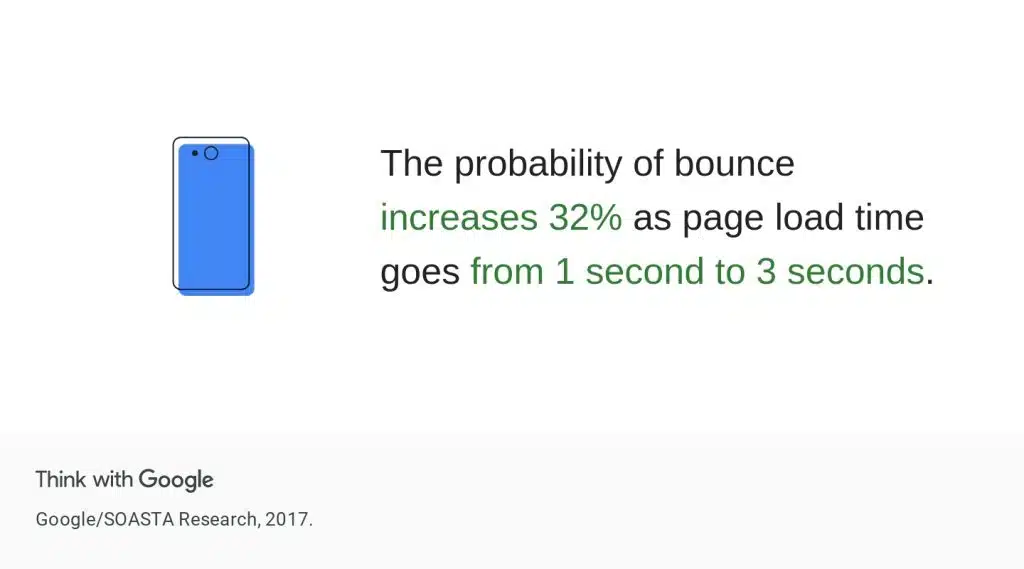
2. SEO Rankings:
- Google’s Algorithm: Google considers page speed as a ranking factor in its search algorithm. Faster websites tend to rank higher in search results, leading to increased visibility and organic traffic.
- Mobile Friendliness: With the growing emphasis on mobile-first indexing, site speed on mobile devices has become crucial for SEO. Google prioritizes websites that deliver fast and responsive experiences on mobile devices.

3. Overall Website Success:
- Competitive Advantage: In today’s digital landscape, where attention spans are short and alternatives are plentiful, a fast website gives businesses a competitive edge. It sets a positive impression and builds trust with users.
- Reduced Bounce Rates: Slow-loading pages contribute to higher bounce rates, as impatient users are quick to abandon sites that don’t meet their expectations. By improving speed and performance, websites can keep visitors engaged and reduce bounce rates.
- Customer Satisfaction: Speed and performance contribute to overall customer satisfaction. A seamless browsing experience reflects positively on the brand, fostering loyalty and repeat visits.
Research conducted by IT giant Google has found that if a page goes from loading in one second to five seconds, there’s a 90% chance people will leave. Akamai found that almost half of us expect a webpage to load in just two seconds, and 40% will bounce if it takes more than three seconds.
Now for your reference, let us take real-life examples.
- Walmart a multinational retail corporation, noticed that every second they shaved off their page load time, they got 2% more sales.
- When Mobify looked at a bunch of mobile sessions, they found that for every extra second it took to load, there was a 7% drop in sales.
- Even Amazon chips in – they found that every tiny improvement of just 0.1 seconds led to a 1% boost in their revenue. These numbers show how important fast-loading pages are. They keep people interested, engaged, and more likely to buy stuff. So, it’s clear: speed matters in the online world.
Benefits of Dedicated WordPress Hosting for Speed and Performance
- Dedicated WordPress hosting ensures optimized server configurations tailored specifically for WordPress sites.
- It provides faster loading times, improved uptime, and reduced glitches compared to other hosting options.
- Dedicated WordPress hosts often offer performance-enhancing features like content delivery networks (CDNs) and global data centers.
- The hosting environment is designed to handle the specific requirements of WordPress themes and plugins, leading to enhanced performance.
- With dedicated resources solely allocated to your website, there’s no resource contention, ensuring consistent and reliable performance.
- Dedicated hosting providers typically prioritize speed and performance, offering hardware and software optimizations to deliver an optimal user experience.
To learn more, you can check out our comprehensive post on ” What is Dedicated WordPress Hosting? Definition, Types & Comparison “.
What Tools and Features are Offered by WPOven’s Dedicated WordPress Hosting?
WPOven is not just like any simple web hosting company; in fact, it is one of a kind that offers only Managed Dedicated WordPress hosting plans and always strives to deliver the Blazingly Fastest website Experience ever.
This is how WPOven makes it possible:
- WPOven has Built-in caching solutions (e.g., PageSpeed, HHVM, Redis, MemCache, etc.)
- Global data centers located in Australia, the US, Canada, Europe, and Asia to deliver your asset Faster.
- Proud Partnered with Cloudflare CDN protects and accelerates websites.
- Server with SSD storage for quicker data retrieval
- Upto 100% Server Uptime
- Amazon S3-based backup system, if anything goes wrong
- Server-level optimization for WordPress-specific tasks
- Scalability options to handle traffic spikes without compromising performance
To learn more, you can check out the page “Fast WordPress hosting“.
How to Monitor and Analyse Your Website Performance and Speed?
Now comes the challenging task. You cannot simply sit back and completely depend on a dedicated WordPress hosting provider. Although they are sufficient, to achieve optimized and best results, certain tasks also need to be performed from your end. Here’s a guide for you.
1. Select the Right Tools: Choose performance monitoring tools that best suit your needs. Google PageSpeed Insights and GTmetrix are popular options, but other tools like Pingdom and WebPageTest can also provide valuable insights.
2. Analyze Page Speed: Enter your website URL into the chosen tool and run the analysis. These tools will measure various aspects of your website’s performance, including page load time, page size, and the number of requests made to load the page.
3. Interpret the Results: Review the results provided by the tools. They typically offer scores or grades along with specific recommendations for improvement. Pay attention to areas where your website may be underperforming or where improvements can be made.
4. Focus on Key Metrics: Look at key metrics such as page load time, time to first byte (TTFB), and overall page size. These metrics directly impact user experience and search engine rankings.
5. Address Critical Issues First: Start by addressing critical issues that have the most significant impact on performance, such as large image sizes, render-blocking scripts, or server response time.
Read: 🚩 WordPress Page Speed Optimization Roadmap
What strategy do you need to follow to optimize website performance?
So, now that you know how to utilize performance monitoring tools and analyze their results, it’s time to implement some strategies to optimize your website for optimum performance. Here’s how you can do it.
1. Optimize Images: Compress images to reduce their file size without compromising quality. Use image optimization tools or plugins to automate this process.
- You can use tools like TinyPNG, JPEG Optimizer, and ImageOptim can help achieve this.
- Consider using modern image formats like WebP, which offer better compression than traditional formats like JPEG and PNG.
Read: 🚩 Top 5 Image Optimizer Plugins for Improved Website Speed and SEO
2. Minimize Java, CSS, and HTTP Files: Minification involves removing unnecessary characters from code without affecting its functionality. This reduces file sizes and speeds up loading times.
- Tools like UglifyJS for JavaScript, CSSNano for CSS, and HTMLMinifier for HTML can automate this process.
3. Implementing lazy loading for images and videos:
- Lazy loading defers the loading of off-screen images and videos until they are needed, reducing initial page load times.
- Libraries like lazysizes.js and Intersection Observer API can be used to implement lazy loading seamlessly.
4. Enable Browser Caching and GZIP compression: Leverage browser caching to store static resources on visitors’ devices, thereby reducing the need to re-download them on subsequent visits. Browser caching stores frequently accessed files locally, minimizing the necessity for repeated server requests. Additionally, GZIP compression reduces the size of HTML, CSS, and JavaScript files.
5. Utilize Content Delivery Networks (CDNs): Implement CDNs to distribute your website’s content across multiple servers worldwide, improving load times for users in different geographic locations.
6. Regularly Monitor Performance: Continuously monitor your website’s performance using these tools and make adjustments as needed. Performance optimization is an ongoing process, and regular monitoring is essential for maintaining optimal speed and user experience.
7. Consider Mobile Performance: Ensure that your website performs well on mobile devices by testing its speed and responsiveness on mobile platforms. Mobile optimization is crucial, as more users access the web from smartphones and tablets.
8. Optimizing database queries and reducing server response times:
- Analyze and optimize database queries to ensure they are efficient and do not unnecessarily strain server resources.
- Use caching mechanisms like object caching and query caching to reduce the need for repeated database queries.
- Optimize server configurations, such as using a content delivery network (CDN) to reduce latency and distribute server load across multiple servers.
Real-world Example of Performance Improvements with WPOven’s Dedicated WordPress Hosting:
One of our clients, a renowned e-commerce website in the USA, suffered a significant loss due to poor website performance and speed. Due to this, their core web vital score was even worse, and as a result, they have poor rankings in SERPs.
See yourself: Before the website hosted on WPOven

After the website migrated to WPOven servers. See the magic of WPOven (Premium Wprocket included Free)

All of these are made possible by WPOven’s fastest WordPress-optimized CDN-ready dedicated servers, proprietary optimizing plugins, Premium WP Rocket support (included free in every plan), and many other optimization techniques.
Conclusion
From the above post, you must now understand how website speed and performance are crucial for any website’s success. It’s only a matter of milliseconds; you can either win or lose. So, you should never take website speed and performance for granted and always prioritize it.
The best thing you can do is to first host or migrate your website to reliable and fastest-managed WordPress hosting. After that, follow the strategies mentioned above to get the best results.

Rahul Kumar is a web enthusiast, and content strategist specializing in WordPress & web hosting. With years of experience and a commitment to staying up-to-date with industry trends, he creates effective online strategies that drive traffic, boosts engagement, and increase conversions. Rahul’s attention to detail and ability to craft compelling content makes him a valuable asset to any brand looking to improve its online presence.

